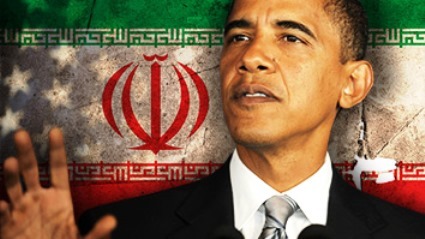Obama’s apologies to Iran and criticism of Arabs
Abdulrahman al-Rashed/Al Arabiya
Wednesday, 8 April 2015
I tried to ignore U.S. President Barack Obama’s interview with the New York Times because I am sure it’s part of his propaganda campaign for the initial deal with Iran. Still, the interview’s impact cannot be ignored. Obama provoked many here in the region, a lot more than he calmed their fears! Thomas Friedman, one of the Times’ most prominent authors and one of the most knowledgeable about the region’s affairs, interviewed the president. Perhaps this was why the nation’s leader was dragged into arguing his points, instead of justifying them. What’s strange about the conversation was that Obama commended the Iranian regime and justified its actions, while implying a sense of guilt over what the U.S. had done against Iran.
I don’t know what books the American president reads before he goes to bed or how he understands events of the past three decades. Tehran’s mentality and practices are close to those of al-Qaeda –religious, fascist and hostile towards anyone who opposes their ideology. Tehran’s understanding of the world paints others as believers and infidels. It is Iran that was responsible for much of the violence in the region under the banner of religion – and this was around 15 years before al-Qaeda even emerged. And as much as Obama was apologetic to the Iranian regime and generous with his gift of a nuclear agreement, he was harsh towards Arabs, and his harshness was unjustified. For example, he said that instead of issuing statements on their fear of Iran, they must stand against the crimes of Bashar al-Assad.
Contradictions
To be frank, I read this paragraph more than once and tried to put it in context, yet I failed to understand its contradictions. The crimes of the Assad regime, which has led to the deaths of a quarter of a million people and displaced more than 10 million is a direct result of the support and interference of Iran, the country which Obama is commending and apologizing to. I don’t know what books the American president reads before he goes to bed or how he understands events of the past three decades. Then Obama criticizes Arabs because they did not fight against the Assad regime, when in fact it’s his government who prevented them from using advanced weapons to confront Assad’s tanks and stop Assad’s warplanes which have shelled Syrian cities every day!
For four years now, the Syrian rebels have been defending themselves against Assad’s forces by using low-grade arms such as Kalashnikovs and mortars – this is because the U.S. prevents them from buying and attaining more powerful weapons from any other party. Then Obama criticized his Gulf allies by saying their fears are domestic, as a result of a lack of satisfaction among their people, as well as extremism, terrorism and unemployment. Of course, this is all true and no one denies the presence of domestic challenges. However it does not mean the Gulf will not voice its irritation at the agreement that the Americans reached with Iran and which set the Gulf’s hand free in a manner that threatens it.
There’s no contradiction here. It’s as if we are telling the American president that he does not have to worry about the Islamic State of Iraq and Syria (ISIS) and al-Qaeda because he has national problems such as unemployment and inadequate healthcare. These two issues are not contradictory! As Arabs, we are not against Obama signing a reconciliation deal with Iran – on the contrary we agree with that because we are the weakest party. Our hope is that we all reach peace and end disputes. However what Obama is doing by lifting sanctions off Iran is that he’s bringing down the wall with the country without restraining it. Meanwhile, Iran sends its forces and generals to fight in Syria and Iraq and funds the Houthi uprising in Yemen.
One of those who read Obama’s interview with Friedman told me that perhaps the president wants his name to make it to the history books, to change in politics like former President Richard Nixon did when opened up relations with China. However the difference is huge. Comparisons with China and Iran are not valid. It’s more like North Korea. China was a country closed on itself and it was not part of wars and terrorist activities across the world like Iran has been doing non-stop for the last three decades.
What’s stranger is that after Obama’s statements were published, the president’s deputy national security advisor Ben Rhodes addressed the Arabs of the Gulf, commending and reassuring them – and thus, some of his statements contradicted what Obama told Friedman.






















